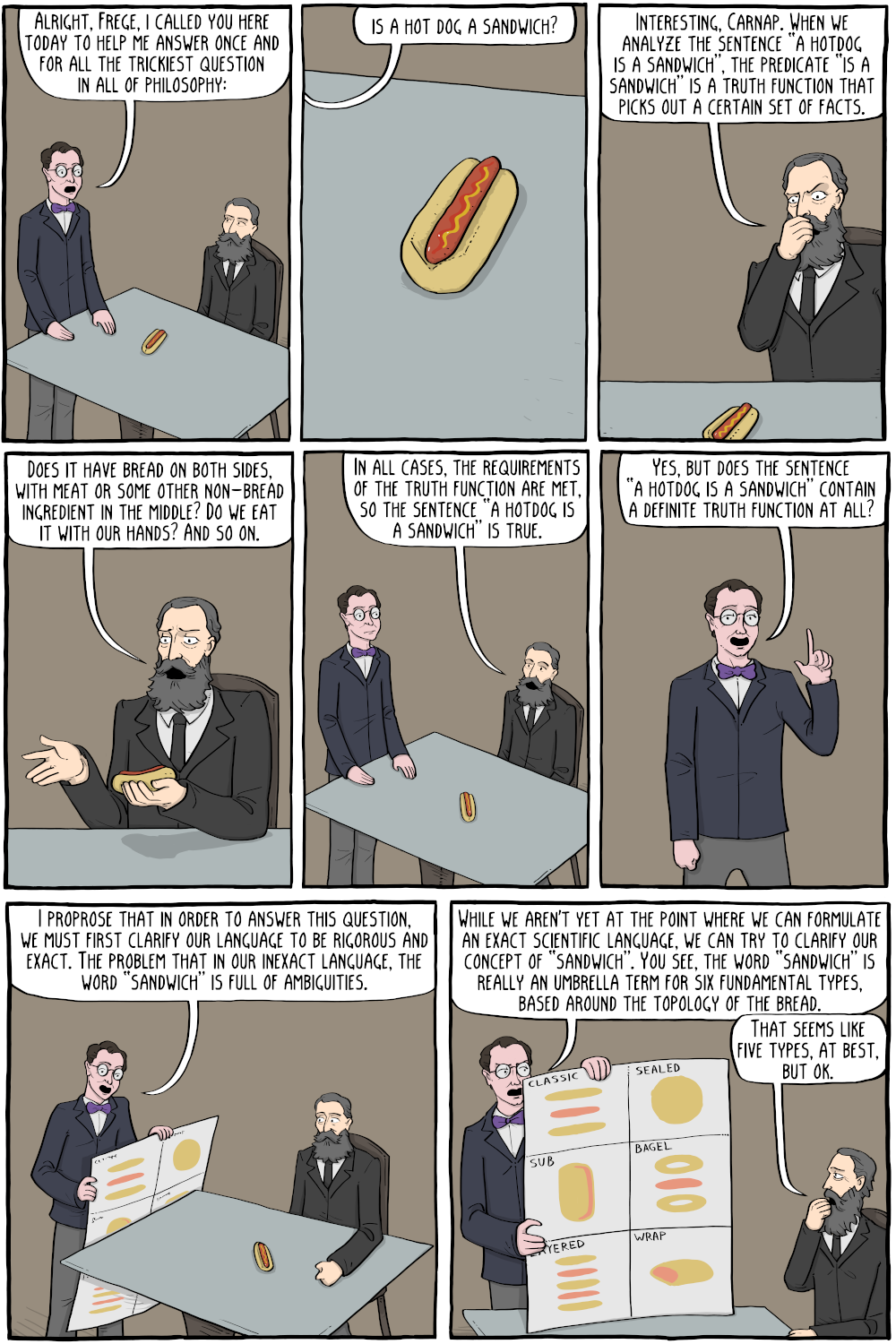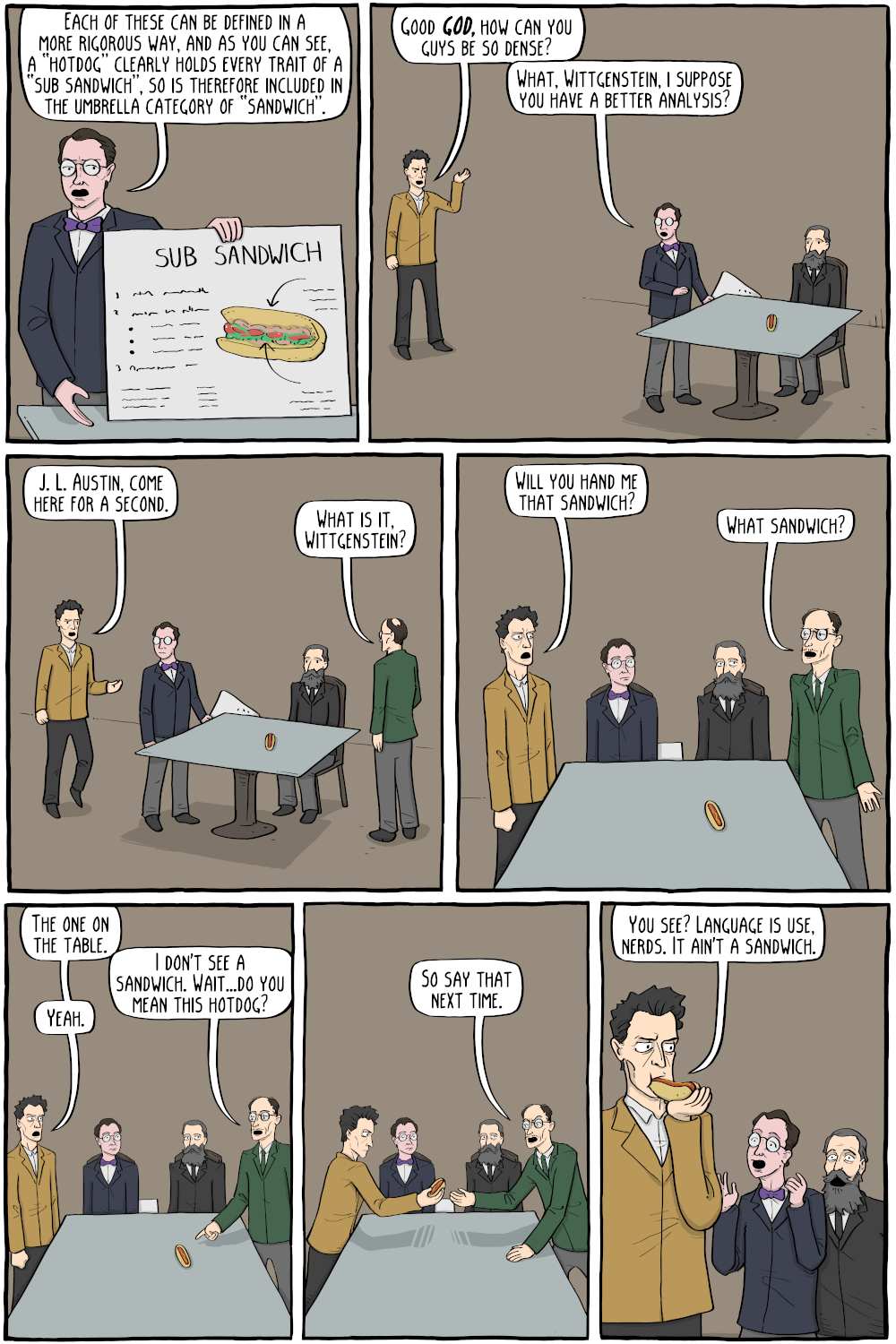1) If no one is being fooled, how can you call it an illusion then?
2) Being "made up by the GM" is absolutely not the same as "constantly and secretly changing whenever the DM feels like it." With illusionism, you must be committed to denying the players the chance to see that the world is being made up on the spot. If you're open about that (which I am, in the exceedingly rare cases where "re-frame things to be where they need to be" is absolutely necessary), then it's not illusionism, because you're actually informing the players about what's going on.
I mean, come on man. You know that arbitrary ad-hoc modification of a world is not absolutely identical in all ways to ANY form of inventing an imaginary thing. You're a smart and well-read person, from what I can tell; you've interacted with media enough to be familiar with things like "canon" and the like, which explicitly fork apart arbitrary change to the world from well-grounded change to it. One of these things is okay. The other is not. Don't pretend that illusionism is precisely the same as invention. The former is explicitly, specifically, intentionally hidden from discovery. The latter, in general, is very much intended to be discovered.
Now, if what you really mean is stuff like "glossing over the 17 branches off the road they could have taken, because they're heading for the Fire Swamp and thus don't really care that they could potentially go elsewhere," okay, that's fair. I just...wouldn't call that "illusionism" anymore, you're just glossing over unimportant details and false starts so that the party can focus on the things they've already chosen to do. As far as I'm concerned, you're defending people presenting each and every one of those 17 branch points as an Actual Serious Choice that the party must think about....only for literally none of them to matter one bit, despite spending table time on making them.
Alright. Why is it different? I have my reasons for seeing it as equivalent to fudging die rolls, but even setting those aside, I don't see how that isn't the same as the princess dying anyway or always having the right choice be the last choice, particularly the latter, since that's about player choices specifically. If the ogre shows up literally no matter what you do, literally no matter where you go, literally regardless of choices or circumstances, isn't that the same as having "the way forward" (the right choice) definitely never happen on the first two tries? Because both of those things are "event X happens, literally no matter how you choose to behave," just "event X" is "you fail twice and then succeed" vs. "an ogre appears."
I'm sure players do. But choices, even small choices, should in general have merit. Now, maybe you have a reasonably well-established reason why SOME ogre will show up whichever path the players take, because this is ogre country. In that case, it's not that the players' choices don't matter, it's that some previous choice(s)* mattered for determining whether they might encounter ogres, e.g. "we decided to adventure in the Wood of the Western Wyld instead of the Southern Sirensong Sea." Or maybe it really is the same singular ogre, but the choice the players make affects when or how they encounter this ogre--because he's tailing them (again, presumptively due to past choices*), or both the left and right routes go through places "in his territory," but he starts on one side before going to the other, meaning the choice might mean starting off on more positive footing (meeting him outside one of "his places") vs more negative footing (running into him AFTER looting one of "his places.")
So...yeah. I'm sure players expect encounters. But unless there's a good reason for ogres to be generically about (an easy thing to establish, mind!), or some other difference occurs as a result of the players choosing path A over path B, I do think it's in the same wheelhouse as the non-fudging examples you described. Same as changing midway through a murder mystery who the real murderer was, or deciding that the party would definitely encounter the Countess ten minutes after starting down either the left or right path. If the choice isn't really a choice, just gloss over it; don't create fictitious choices that appear to have value but are literally irrelevant.
*It's worth noting here, there does need to be a LITTLE bit of pseudo-non-choice, in that even for a hardcore no-prep DM, worldbuilding and a campaign premise had to happen to some extent. This implies a TON of invisible pre-game choices made by a given character, but the players are still presumptively choosing to go with this by agreeing to participate in the game. Thus, as noted, I consider this following from player choices, though the DM bears a significant burden to make that campaign premise exceptionally clear well in advance.




